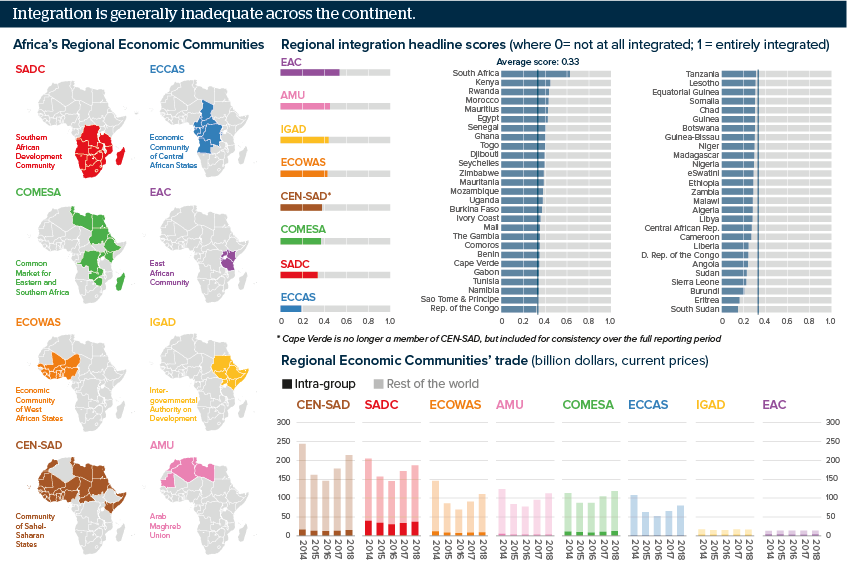African regional integration faces new urgency
Lagging regional integration is further complicated by the COVID-19 crisis
Source: Media sources, Africa Regional Integration Index 2019 (African Union, United Nations Economic Commission for Africa, African Development Bank); UNCTAD, IMF.
Outlook
The latest Africa Regional Integration Index Report shows states and regional economic communities generally not well integrated, with the EAC overall the most integrated community across five criteria: trade integration; productive integration; macroeconomic integration; infrastructural integration; and the free movement of people.
Sub-Saharan Africa’s growth is set to contract by at least 1.6% in 2020, and global growth by at least 3%, with severe impacts for regional heavyweights Nigeria and South Africa.
With the African Continental Free Trade Area (AfCFTA)’s implementation now delayed (potentially until 2021), and COVID-19-related disruptions to global trade and financial markets, enhanced regional integration will become even more pressing to offset expected economic downturns.
Impacts
- COVID-19-related border and trade restrictions will strain various bilateral relationships over the short-to-medium term.
- Progress on freedom of movement and visa openness could face renewed setbacks.
- Recent continental efforts on procuring COVID-19-related supplies will intensify efforts to improve medical regional value chains.
- COVID-19-related border closures will exacerbate ongoing and emerging food security crises.
See also
- COVID-19 will test East African unity - Jul 15, 2020
- US-Kenya trade pact may undermine African aspirations - Feb 27, 2020
- More graphic analysis
